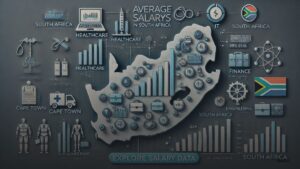Introduction
Hey Hustlers! At HustleHub, we’re all about keeping you ahead of the curve with the latest in economic policies and how they might affect your hustle. Today, we’re diving into the hot topic of Universal Basic Income and what you can expect from it in 2024-2025. We’ll also break down how UBI compares to the Social Relief of Distress (SRD) grants currently in place.

Key Takeaway Box
Universal Basic Income in Canada is a proposed system where all citizens receive regular, unconditional payments from the government to cover basic living expenses. While not yet fully implemented, UBI aims to reduce poverty, boost the economy, and improve overall well-being. The SRD (Social Relief of Distress) grants, in contrast, are temporary, means-tested payments provided to those in dire need. The upcoming years will see debates and potential pilots for Universal Basic Income in Canada, focusing on economic impacts, feasibility, and comparisons to current support systems like SRD.
What is Universal Basic Income?
Universal Basic Income is a government program where every citizen receives a fixed amount of money regularly, regardless of other income. The idea is to provide financial stability, reduce poverty, and improve quality of life. UBI programs have been tested in various regions with mixed results, showing both potential benefits and challenges.
Current State of UBI in Canada
Canada has been exploring Universal Basic Income through various pilot projects over the years. Notably, the “Mincome” experiment in Manitoba during the 1970s and the Ontario Basic Income Pilot from 2017 to 2018 provided valuable insights into the impacts of such a program. These pilots showed improvements in mental health, education, and employment among participants but were discontinued before long-term conclusions could be drawn.
SRD vs. UBI: Understanding the Differences
Social Relief of Distress
- Purpose: Temporary relief for those in immediate need.
- Eligibility: Means-tested, provided based on income and need.
- Amount: Varies, often insufficient for long-term stability.
- Duration: Short-term, until the recipient’s situation improves.
Universal Basic Income
- Purpose: Permanent financial support for all citizens.
- Eligibility: Universal, not means-tested.
- Amount: Fixed, sufficient to cover basic living expenses.
- Duration: Ongoing, aims for long-term economic stability.
| Feature | SRD | UBI |
|---|---|---|
| Purpose | Temporary relief | Permanent financial stability |
| Eligibility | Means-tested | Universal |
| Amount | Varies | Fixed |
| Duration | Short-term | Ongoing |
Potential Benefits of Universal Basic Income
- Economic Growth: UBI could inject money into the economy, increasing consumer spending and boosting local businesses.
- Poverty Reduction: By providing a financial safety net, UBI aims to lift people out of poverty and reduce inequality.
- Health and Well-being: Improved financial stability can lead to better mental and physical health, reducing healthcare costs.
Potential Challenges of Universal Basic Income
- Funding: Implementing Universal Basic Income would require substantial government funding, potentially leading to higher taxes or reallocation of existing resources.
- Inflation: There’s a concern that UBI could lead to inflation, negating some of the benefits by increasing the cost of living.
- Work Incentives: Critics argue that providing unconditional income might reduce the incentive to work, although pilot studies have shown mixed results on this front.
| Potential Benefits | Potential Challenges |
|---|---|
| Economic Growth | Funding Requirements |
| Poverty Reduction | Risk of Inflation |
| Health Improvements | Potential Work Disincentives |
FAQs
What is the main goal of Universal Basic Income?
To provide financial stability and reduce poverty by ensuring everyone has enough income to cover basic living expenses.
How is Universal Basic Income different from SRD grants?
UBI is a permanent, universal payment, while SRD grants are temporary and means-tested.
Will Universal Basic Income replace other social benefits?
Current proposals suggest UBI would complement, not replace, existing social benefits.
How will Universal Basic Income be funded?
Funding could come from various sources, including taxes and reallocating existing social welfare funds.
What are the expected economic impacts of UBI?
UBI could boost consumer spending, create jobs, and stimulate economic growth.
Have there been successful UBI pilots in Canada?
Yes, pilots like the Mincome experiment in Manitoba and the Ontario Basic Income Pilot showed promising results but were not long-term.
When will UBI be implemented in Canada?
UBI is still under debate, with potential pilot projects and discussions continuing into 2024-2025.
For more detailed information, visit HustleHub and stay tuned for the latest updates on UBI and other economic policies.
Conclusion
As we move towards 2024-2025, the discussion around Universal Basic Income in Canada continues to evolve. At HustleHub, we’re committed to keeping you informed and prepared for these potential changes. Whether it’s understanding the nuances of UBI or how it compares to current systems like SRD, we’ve got you covered. Keep hustling, stay informed, and let’s navigate the future together!


